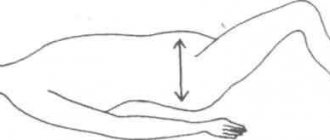This article was developed under the heading: Psychology.
Section: Processes.
In the modern world, with a fast pace of life, we are often faced with a state when a feeling of dissatisfaction arises when it is impossible to achieve some result. Everything is falling out of hand, the number of tasks is growing. We begin to feel a wide range of emotions and experiences - anger, anger, disappointment, irritation, guilt. This state is defined as frustration. Are you familiar with this condition? Does it make you anxious? Let's figure out what it is, how you can fight it, and how you can help yourself.
Frustration is a common phenomenon for modern man
Symptoms of Frustration
A frustrated person experiences a whole range of negative emotions:
- diffidence;
- irritation;
- anxiety;
- isolation;
- despair.
But the reactions of his behavior are mainly based on the character and qualities of the individual. Usually, when faced with a frustrator, a person displays aggression, which is directed at the source of the problem and the people around him. Sometimes a replacement reaction occurs if a person cannot cope with a problem, taking out anger on other people. Symptoms of frustration will then be various aggressive actions and words, anger, loss of self-control
Frustration can make a person withdraw, retreating from a problem consciously or unconsciously. A person is able to honestly admit that he is wrong and the mistakes he has made, or he can withdraw into himself, sublimate, and fantasize. Then the symptom of frustration will be “switching” to another type of activity. For example, difficulties in personal relationships lead to concentration on career and vice versa. Symptoms of frustration also include unusual fantasies or withdrawal. Infantile people have a tendency to regress when confronted with frustrators. Unable to achieve their goal, they abandon it, lowering the bar.
Example
Leonid Prokhorov
Psychologist, Gestalt therapist
Ask a Question
For example, having difficulty buying his own home, an infantile person will return to his parents’ home, ceasing to strive to be independent. That is, he will return to the behavioral stereotype that once allowed him to satisfy the need for housing. The healthiest response to a situation of frustration is tolerance and acceptance of the problem. Then the person realizes his mistakes and tries to find a suitable solution. He exhibits a high level of optimism, evaluates what happened as a positive experience and strives to achieve his goal again.
Diagnostic methods
There are several ways to identify emotional frustration in a person. The short questionnaire was developed by V. Boyko; it contains 12 points, where a point is awarded for each.
Important! If the final result is more than 10 points, then the individual has high frustration, from 5 to 9 - a high risk of development, less than 5 - there is nothing to fear.
A brief diagnosis is offered by L. Wasserman. It contains 20 questions, each answered from “completely satisfied” to “not satisfied.” The answer is scored from 0 to 4 points. The sum is calculated and divided by 20. As a result, if the result is 3.5-4 points, then high frustration, from 3.0-3.4 - average state, 2.5-2.9 - moderate, 2.0- 2.4 is weak, anything below 1.9 should not cause concern.
When diagnosing, it is important to understand that frustration and deprivation are different conditions. They require a different approach to correction. V. Boyko has a more detailed diagnosis, which allows one to determine accumulated emotions.
Prostration and frustration are also different states. With prostration, a person experiences serious nervous exhaustion, while frustration occurs when it is impossible to satisfy one’s desires.
Causes of frustration - Factors of occurrence
Main frustration factors:
- Physical reasons, i.e. material restrictions - lack of funds, restrictions on freedom of movement, etc.
- Psychological reasons - lack of necessary knowledge, complexes, fears.
- Biological reasons - obvious defects in appearance, health problems, gender differences.
- Social reasons - sociocultural differences with other people, religious or political conflicts, other communication-related problems.
The cause of frustration is the lack of opportunity to satisfy a need, the loss of an object or subject through which the need was satisfied, or a conflict.
A person needs care and understanding, but there is no reliable close friend in his environment. Attempts to make friends with someone or start a relationship constantly fail, and he experiences severe disappointment.
The care and understanding received from a loved one disappears due to a breakup or death. The human condition aggravates the bitterness of loss.
The desire to receive care and support may conflict with internal principles: the desire for independence, selfishness, and reluctance to compromise.
Let's now try to define for ourselves what frustration is.
Lost state when you don't know what to do
27.85%
A state of bitterness because you are limited in something
40.51%
The state of being unable to accept something, which forms a mental block in the mind
31.65%
Votes: 79
Further research
One of Williams's studies examined the effects of irritation and frustration in gaming and assessed how these factors relate to trait aggression. His study collected data from 150 men's college students. The study consisted of two phases. The first phase lasted 45 minutes and involved working in a large group. During this phase, participants were asked to complete a series of questionnaires that assessed their gaming habits and aggression. The second phase consisted of a one-on-one session with each participant. During this phase, participants played video games and were assigned to one of four conditions:
- With violent content in low/medium difficulty mode.
- With violent content in constant frustration mode (high difficulty).
- With non-violent content on easy difficulty mode.
- With non-violent content in constant frustration mode, i.e. at a high level of difficulty.
As part of maintaining a maximally frustrating condition, participants were informed that their scores would be compared with other participants and that higher performance would be rewarded with a $100 gift card. Participants then completed a questionnaire similar to the first. Ultimately, this study found that exposure to violent content influenced participants' aggressive responses while playing video games. The psychologist also found that general examples of frustration from gameplay were just as impressive as those from aggressive reactions from other participants. Modern gaming culture is therefore a great opportunity for people to get together, play something and throw out pent-up emotions.
What leads to frustration - Types of conflicts
Conflicts leading to frustration are divided into three types:
- Conflict of equal opportunities. For example, a person chooses between a foreign career and a responsible promotion up the career ladder. Both options have their merits, so a person experiences the agony of choice.
- Conflict of equal problems. The example mentioned above can be understood differently. Firstly, moving will cause difficulties - the need to improve a foreign language, create new social connections, and break relationships with loved ones at home. Secondly, domestic advancement up the career ladder will also cause a number of problems - the need to be responsible for decisions made, reduction of free time, envy of others, etc.
- Conflict of opportunities and problems. In the above example, when choosing a career path, a person will certainly encounter this conflict. He needs to make a choice between career growth and free time, financial well-being and environment.
It’s worth saying right away that the causes of frustration are not only frustrating situations, but also a number of accompanying factors:
- Repeated repetition of the problem, that is, long-term unsatisfaction of the need.
- Human emotional excitability.
- Degree of dissatisfaction.
- Having a negative experience.
- Goal achievement stage.
When several of these factors are combined with a frustrator, a person overcomes frustration thresholds and finds himself in this difficult emotional state. The more related factors coincide, the more difficult it will be for him to overcome the problem.
In modern society, the bar for success is set too high, and it is very difficult to achieve it. Attractive people with a good job, a prosperous family, their own real estate and other symbols of success are considered successful. In pursuit of achieving the norms established by society, people forget about their real needs and desires, which means that symptoms of frustration appear more and more often.
All types of conflicts are possible in real life
Types of frustaters
A frustater is a factor that forces you to fall into a state of frustration. As a rule, it is this that determines when you fall into such a state
Poverty. In conditions of constant monetary shortage, human ideas about the essence of happiness change. There is a parable in which a poor man complains about his cramped housing, where he lives with numerous relatives. The sage advises him to temporarily place his pets there in order to feel the catastrophic nature of the situation. So happiness is relative.
Poverty causes frustration not only when it is impossible to satisfy the simplest personal and family needs. Financial status is a serious frustration when society consists of people of varying degrees of income. Despite a decent standard of living, a person independently enters into frustration through social comparison.
Particularly strong frustration occurs if a person believes that rich people make their fortune only through illegal and immoral means. The perception of oneself as a poor, disadvantaged person depends on the ratio of his needs to real achievements.
Other types of frustaters:
- Physical reasons. Physical reasons include financial restrictions and loss of freedom.
- Biological reasons. Biological causes are aging, external features, changes in appearance.
- Psychological. Psychological - lack or lack of knowledge, fears, doubts.
- Social. Social reasons are related to communication with other people.
Other quite ordinary things can also act as frustaters.
Correction methods
In order to understand what frustration is, it is not necessary to know the definition. It is enough to imagine the features of this condition. It is dangerous if prolonged. Experts identify several methods of disposal.
Replacing funds
Sometimes a person is prevented from achieving a goal by the wrong road. In this case, he needs to analyze his behavior and think about whether he has chosen the right path.
It is useful to develop a consistent action plan
You can't always succeed the first time, that's normal. You need to be able to stop in time and think about your actions.
Replacement target
Sometimes a person misjudges the sequence of work. In this case, he immediately sets himself an unattainable level of goal. Therefore, you need to think about the stages and sequence of actions, and then set a simpler goal.
A simple example: a person takes up sports and in a year wants to get to the Olympics. This cannot be done, but you can set a goal in the form of receiving a discharge.
Reassessment of the situation
The concept of “frustration” is considered in psychology from the point of view of dissatisfaction. But a person does not always understand where his desires are and where those are imposed by society. Therefore, it is important to be able to reflect and separate true needs from false ones. If a goal is imposed by society, but the individual himself does not need it, then there is no point in talking about dissatisfaction.
How to get out of a state of frustration?
The most correct response to a frustrator remains tolerance: acceptance of the problem. So correction of frustration involves the formation of emotional constancy. To develop this quality, it is necessary to learn how to set goals and plan ways to achieve them. Having objectively assessed the task at hand, it is easier to find a solution or calmly accept the fact that such a solution does not exist at the moment. Sometimes frustration therapy needs to be left to professionals. In a serious condition and in the absence of motivation to solve difficulties, it makes sense to ask for help from a psychologist or psychotherapist. A professional understands how to overcome frustration with a minimum of losses by solving the problem, coping with its consequences and starting to enjoy life.
It is possible to find many ways to achieve one goal, or to find an alternative goal to satisfy a need or desire. In NLP and hypnosis. For example, there are techniques that allow you to transfer the feeling of love to another object, getting rid of unrequited love. Also, one of the methods of getting out of frustration is introspection, in which a person looks into his inner world.
Of course, if a person's instinct is seriously fixed on a specific person, he will refuse to believe that it is possible to feel such powerful feelings for anyone else.
Finding a target that can compensate for the qualities of the one it is replacing will require patience. However, if this were not possible, people would not marry happily several times in their lives and would not find the meaning of life in new activities after losing the opportunity to do what they love. For example, actor A. Banderas dreamed of a football career, but a leg injury led him to abandon such a dream. It is unlikely that a popular actor today feels frustrated by an unfulfilled teenage dream.
Getting out of this state is difficult, but possible
Examples of frustration from everyday life
A frustrating situation familiar to everyone from childhood. The mother walks with the child, imposing stereotypical behavior with statements: “You are a girl, they are not supposed to fight!” or “You’re a man, they don’t cry!” As a result, many women cannot fight back in conflict, and men are forced to experience their suffering in secret from other people. In these cases, a frustrated personality arises.
There are many such examples. When a child, faced with minimal difficulties between him and the satisfaction of desires, becomes aggressive, consequently, social frustration arises. For an adult, this will lead to many intrapersonal and interpersonal conflicts. Another common example of frustration is severe disappointment in male-female relationships. It arises from stereotypes about relationships. Books, films, magazines form in the human mind a template for ideal relationships that do not exist in reality. Failure of a partner to meet the imagined ideal leads to conflicts, separations, disappointment and frustration.
Fight and try to avoid such situations
Consequences of frustration
There is a replacement of reality with a world of fantasies and illusions, inexplicable aggression, complexes and general regression of personality. Such an emotional state is dangerous by changing a person for the worse. With constant frustration, a person literally begins to degrade. The collapse of plans leads to disappointment in oneself, undermining faith in one’s professional abilities, the ability to communicate with people, and personal independence. A person develops fears and doubts, which result in an unmotivated and unwanted change of activity. A person isolates himself from the world, becomes aggressive, and feels distrust of people. Often there is a collapse of normal social connections.
Did you feel aggression and closedness after frustration?
Yes, I felt some indifference to the world.
94.74%
No, I quickly came out of this state.
5.26%
Voted: 57
Types and forms of frustration
Frustration was studied by K. Levin, R. Barker, T. Dembo. They identified a classification based on the types of response to a frustrator:
- Motor, if the reaction is expressed in an explosion of emotions, aimless and disorderly movement, gestures, and expression of feelings.
- Apathetic if there is a loss of desire to move and solve problems.
- Aggressive if there is a desire to crush everything around.
- Stereotypical when a pattern of behavioral reactions arises.
- Regressive if a person begins to behave like an immature person.
The number of forms of frustration states in different studies varies from three to five. Most researchers focus on human reactions rather than on the causes of frustration.
By classifying such conditions according to the source of their occurrence, the following forms of frustration are derived:
- Emotional - intrapersonal conflict provoked by multi-vector emotions, feelings, beliefs and desires. For example, religious people are capable of experiencing emotional frustration when their religious dogmas conflict with their desires.
- Love - disappointment and despair due to problems in relationships: quarrels, conflicts, breakups. It usually appears in people who have emotional dependence on a partner or have stereotyped expectations and inflated demands.
- Sexual - lack of satisfaction from sexual intercourse on a mental level. Appears when partners lack understanding and there is a conflict between expectations and reality.
- Existential - raising the search for the meaning of life to the Absolute.
- Social - disappointment, despair and anger due to dissatisfaction in social position. It arises due to socio-economic reasons: unemployment and strong competition in the labor market, the gap between the financial well-being of different social strata, poor quality of education, etc.
Study the forms of frustration, as classification always helps to specifically overcome the condition
Love and sexy
Love frustration is a psychological state as an experience that appears due to a break in a relationship. Such states are typical for people who are drawn to an object out of a feeling of weakness, and not out of their strength and confidence. A person deeply feels the breakup of a relationship if he is emotionally dependent on his partner. It also appears due to the lack of the desired result that is expected from a partner. Manifested by the following symptoms: aggression, depression, despair, anxiety, and a feeling of dissatisfaction.
Sexual frustration is a separate psychological aspect that implies a lack of sexual satisfaction. A person does not receive a feeling of satisfaction from intimacy psychologically and physically. There is a depression in the mental state, which is caused by disappointment.
This is a fairly common type of frustration.
Social
Social frustration - disappointment, despair and anger due to dissatisfaction in social status. It arises due to socio-economic reasons: unemployment and strong competition in the labor market, the gap between the financial well-being of various social strata, poor quality of education, etc.
Social frustration is more common among men, judging by work practice
Frustration of needs
A. Maslow notes in his works: satisfaction of needs contributes to the emergence of such a state. After low levels of need satisfaction, higher level needs emerge (for example, self-awareness and social recognition). Until high needs appear in consciousness, they are not a source of frustration.
A person who is worried about pressing problems (food, etc.) cannot think about higher matters. In this state, he will not learn new sciences, fight for equality in society, he will not worry about the situation in the country, because he is concerned about pressing matters. Having completely or partially solved pressing problems, an individual is able to rise to high levels of motivational life, therefore, he will be affected by global problems (social, personal, intellectual) and he will be a civilized person.
People are doomed to want what they do not have, so they do not think that often the efforts aimed at achieving the desired goal are meaningless. It turns out that the occurrence of frustration is inevitable, because a person is doomed to experience a feeling of dissatisfaction all the time.
This type of frustration is quite possible to avoid - just watch your health
Frustration in relationships
Frustration extends into all areas of life, including relationships. Being under emotional stress, a person may not notice his partner, ignore his comments and be in thoughts about his own problems. This leads to relationship regression. The person becomes irritable and aggressive. His mood deteriorates, he withdraws into himself and plunges into frustration. Quarrels, bickering, misunderstandings arise in relationships, and this destroys them.
Young couples always go through this condition at some point.
Existential
Existential frustration, which appears if the desire for meaning is frustrated. Apathy and boredom are the main qualities of existential frustration. Existential frustration is neither pathological nor pathogenic. Anxiety and despair caused by a vain search for the meaning of life is more of a spiritual disaster than a disease. Frankl believes that the existential vacuum with its accompanying frustration is “something sociogenic, but not a neurosis.” Despair, which is based on a sense of the meaninglessness of life, is a sign of intellectual sincerity and honesty. In Frankl's later works he finds the expansion of an existential vacuum.
Try to get rid of unnecessary thoughts and worries
How people behave when frustrated
American psychologist Saul Rosenzweig identified 3 types of reactions to frustration:
- Extrapunitive (happens in half of the cases). An internal “instigator” awakens in a person, prompting him to search for those to blame in the outside world (people, circumstances). The goal of achieving what you want appears in any way. The emotional background is characterized by stubbornness, anger, aggression, and frustration. Behavior becomes rigid, primitive, previously learned types of behavior are resumed, for example, whims.
- Intrapunitive (happens in 27%). A person is haunted by a feeling of guilt, he blames himself. This ends with auto-aggression (aggression directed at oneself). The emotional background and behavior are characterized by isolation, anxiety, and silence. A person returns to primitive forms, the degree of aspirations decreases, there is a restriction in activity and satisfaction of desired needs (“You haven’t achieved this, you don’t deserve anything”).
- Impulsive (occurs in 23% of cases). The person does not blame anyone, there is an acceptance of what happened. At the same time, he understands that everything can be resolved, it’s just a matter of time and effort. Failures are inevitable, but they can and must be overcome.
These are the 3 main types of behavior in this state
crowding out
Repression is the removal from consciousness of memories and experiences that I frustrate. In psychoanalysis, this mechanism is seen as a way to adapt to unsafe internal drives. Outwardly it manifests itself as unmotivated forgetting or ignoring objects that cause psychological discomfort. But suppressed feelings and memories do not disappear. For example, they can easily be restored through hypnosis.
Repression often occurs during frustration
Reassessment of the situation
A good solution to get out of frustration due to internal conflict is to choose between alternatives. Turn to your mind and your emotions.
Evaluate the pros and cons of each of your desires. Write down the arguments on paper, identify those that are of key importance in your life, leave others. Determining your core values will help you overcome anxiety and fears.
Another way to define a choice is to imaginatively experience its results. Of two alternatives, choose one as the final one, as if the choice had already been made in its favor. Before going to bed, try to feel as realistically as possible that the final decision has already been made. Do not take any definite steps towards implementing the chosen alternative yet.
The next day (several days, a week - depending on the fate of the choice) watch yourself. Everything is important - mood, energy, performance, feelings towards other people, level of irritability. Repeat the same process for the second, third choice.
This exercise will help expand the perceived context of the problem, realize hidden fears and real needs. It is often possible to combine elements that seem to be opposing at first glance. For example, the desire to assert oneself while maintaining the love of others can be combined into an attempt to become a leader of a group.
Internal conflict is a sign of splitting the integral “I” into several subpersonalities. A thoughtless refusal to satisfy the needs of any of the subpersonalities will certainly cause sensations equivalent to the amputation of a part of the body. That is why, when in a situation of internal conflict, as well as external conflict, look for a compromise.
Reassessment of the situation can take a long time in the process of reflection or become an unexpected result of insight. Hypnosis is considered one of the methods of mental integration.
Moreover, hypnosis helps to achieve results as painlessly as possible.
Substitution
Substitution is the replacement of an object or need with another, more accessible and safer for discharge. The operation of such a mechanism explains how troubles at work cause quarrels at home. The inability to enter into an open conflict with the boss leads to the release of aggression on a more dependent spouse or child.
When the replaced action or desire is morally impossible, but the replacement is acceptable, the process is called sublimation. For example, you can get rid of aggression through active physical education.
Substitution includes withdrawal into fantasy and addiction to psychoactive substances. As well as devaluation of the frustrating object or need. For example, after a failure in love, an individual gives up trying to organize his personal life and explains this behavior by the low importance of this area of life relative to the importance of making a career or, for example, “spiritual self-development.”
Replacing one feeling with another, usually the opposite, is called reactive transformation. Unacceptable emotions cease to be recognized, and acceptable ones become hypertrophied. Thus, paranoid individuals are capable of suppressing attraction and interest in a person, accepting feelings as dangerous for themselves, and shifting the emphasis to suspicion and hatred.
Some may replace frustration with loved ones
Intellectualization
This mechanism of psychological defense consists in a logical understanding of events from the position of good-bad, useful-useless and relegating to the background the meaning of information that provides actually experienced emotions. An example of intellectualization is human reasoning that death saved a deceased friend from suffering and other troubles in life.
Intellectualization allows you to reduce painful experiences without completely losing data about their presence. When faced with a frustrating situation, intellectualization is perceived as a mature approach to the problem, and therefore is approved and supported in society, being attractive to many people.
But it has disadvantages: it leads to the loss of the opportunity to fully experience one’s own negative and positive feelings. As a result, a person has problems in personal relationships, since self-expression under the influence of this mechanism becomes similar to insincerity and indifference.
One of the most interesting mechanisms of the body is to carry out intellectualization
Regression
It manifests itself in a person’s return to primitive, often childish forms of behavior and thinking that once successfully resolved real conflicts and difficulties. A return to infantile strategies of psychological adaptation can manifest itself in the desire for someone to caress and console. Sometimes an adult man, when faced with an insurmountable obstacle, is able to cry like a little one.
You need to understand: within certain limits, ego-protective mechanisms are a way of normal psychological adaptation. But when a person abuses their use instead of finding a real solution to life problems in practice, personal development is inhibited, and the same life experiences are constantly repeated.
Have you seen regression in people due to a state of frustration?
Yes, I was surprised then.
65.79%
Interesting, I've never seen anything like this before.
34.21%
Voted: 38
Theories of frustration by famous psychologists
Now we will take a closer look at the theories of the emergence and emergence of frustration itself, which were outlined by famous psychological theorists.
Dollard's theory
According to Dollard, experiences usually lead to aggression and vice versa. Aggression is impossible without the occurrence of frustration. Moreover, the more insurmountable the difficulties, the more significant the unachieved goal, the more aggressive the person becomes.
A negative reaction is directed by a person not towards a traumatic event or people, but towards another person, usually not related to the problem. The individual, throwing out dissatisfaction with the state of affairs, gets rid of the frustration block.
The theory was later criticized because anger is not always the only and predominant emotion during frustration. Melancholy, sadness, irritation, despondency, etc. may be present.
Kurt Lewin's theory
Regression is a transition from a more mature form of development to a less mature one. In psychology, a similar regression is observed in older people, whose emotions and actions resemble small children. A person who has experienced frustration rolls back to the previous age group, thus protecting himself from the traumatic event. He removes responsibility for the failures that happen to him, closes himself off from painful sensations, stops looking for a way out of the situation, and “gives up.”
Norman Mayer's theory
He believed that with frustration, goal orientation is lost. A person is fixed in a position, a point that he has reached without getting what he wants, and his goal-setting is completely lost. A characteristic state for such a person is prolonged apathy.
Maslow's theory
He believed that the experience of frustration is inversely proportional to the pyramid of needs. The higher the level of need, the stronger the frustrating factor. Not being appointed to a high-paying position is more traumatic than not being able to buy new shoes.
Definition
Translated from Latin, the term “frustratio” means “unsuccessful attempt”, “failure to fulfill the plan.”
In psychology, this word is given the following definition: “a characteristic state of consciousness that occurs when a person is unable to satisfy his needs in real or potential situations.” In simple words, frustration is a discrepancy between an individual’s intentions and his capabilities, as a result of which he feels tension, irritation, and possibly despair.
In any situation in which frustration manifests itself, internal harmony is disturbed, and the individual tries in every possible way to restore balance and satisfy the current need.
Philanthropist - helping for profit or a character trait?
General theories of frustration
In addition to all of the above, we also need to look at frustration from mainstream psychological theories. Let's get started.
Frustration aggression
As a psychological state against the backdrop of failure, aggression means not only a direct attack, but also hostility and a threat. A person is consumed by anger, anger, rage and needs to be thrown out.
Hostile behavior occurs:
- obvious - rudeness, disruptions, fights;
- hidden - sarcasm, accusations, bitterness, the person becomes toxic.
Aggression is common. If at work it was not possible to complete a project in a timely manner, the boss received a reprimand, the person takes it out on his wife or child at home. They are defenseless, unable to respond adequately, and often turn into a target.
Aggression can be directed at oneself when a person engages in self-criticism and cultivates a feeling of guilt. Intense self-flagellation can cause many different serious illnesses.
Some people experience frustration in aggression
Frustration fixation
Passive form of response to frustration. Fixation develops in two types:
Action according to the “knurled” pattern, lack of forward movement. No matter what happens, the person does not try to change the settings and algorithm of actions. Fixation is not hostile to the world around us, but it does not bring any benefit either. There is a looping on the frustrator. Thinking remains unchanged, it is stereotypical. A person spends a long time chewing on suffering and can become capricious and touchy.
Any type of fixation is destructive and does not allow taking measures to correct thought forms and situations.
It's about going with the flow, so to speak.
Deprivation and frustration
These conditions are often confused, although they are different. Frustration occurs due to dissatisfaction of desires and failure to achieve set goals.
Deprivation occurs due to the lack of opportunity or the very object needed for satisfaction. But researchers of the frustration and deprivation theory of neurosis believe that these two phenomena have a common mechanism.
Deprivation causes frustration, it leads to aggression, which provokes anxiety, leading to defensive reactions.
The problem of frustration acts as a theoretical discussion and is the subject of experimental studies conducted on humans and animals.
Frustration is considered in the context of endurance to life's difficulties and reactions to them.
Deprivation is a state when you cannot realize something due to impossibility or lack of resources
Frustration regression
Frustrated people become very infantile. They “roll back” in development. Motives for actions become immature, and finding a way out of the situation stops. A person no longer reflects, does not analyze cause-and-effect relationships. Consciousness moves to the degree of satisfaction of the lowest level needs.
In addition to the psychological content and manifestation, frustration varies in duration for different people - from short-term emotional outbursts to long-term depression.
The person begins to act like a child
From a neurophysiological point of view
Some studies have shown that frustrating and equally dangerous events can trigger feelings of aggression. This is based on the fact that one of our neural systems is responsible for executing basic responses to threat. It so happens that one of the main responses of this system is aggression. The signal sending this emotion travels from the amygdala to the hypothalamus and finally arrives at the periacoustic gray matter. More detailed research shows that when someone is threatened or upset by certain stimuli, parts of our frontal cortex, such as the orbital, medial and ventrolateral frontal cortex, work in tandem with our threat response system located in the amygdala-hypothalamus. Simply put, threatening events generate more action options in the frontal cortex, which are then transmitted to the amygdala-hypothalamus. It is in this basic threat response system that decisions about what response to make are made and are based on information received from areas of the frontal cortex.
As mentioned, there are different degrees and responses that can occur in an animal as a result of a frustrating event. This does not interfere with the underlying circuitry at the neuronal level and simply means that certain stimuli generate more action possibilities than others, and therefore generate stronger responses as well. It is for this reason that animals display a hierarchy of responses at the beginning of an upsetting event. For example, when low levels of threat are perceived, the threat response system induces torpor in the animal. Closer threat objects generate the act of fleeing from its environment, and finally, when the source of the threat is so close that escape is no longer an option, the threat circuit system will produce reactive aggression in the animal. This means that the more we are affected by an irritating stimulus, the more likely it is that our basic response systems will be activated and thus lead to certain behavior accordingly.
Additionally, some studies have shown that people with increased sensitivity to disorders showed greater activity in these brain regions (amygdala-hypothalamus) in response to frustrating events compared to those with less sensitivity. This study shows that people who are more easily upset than others show more activity in the frontal cortex due to activity in the amygdala-hypothalamus, a system that causes us to act aggressively given a strong enough stimulus. And only an experienced psychologist will understand that this is frustration, and not banal anger or rage.
Formation of tolerance to frustration
Tolerance to frustration develops. People with a low level of frustration tolerance have certain irrational dogmatic beliefs, expressed in the form of “never”, “always”, “should have”, “unbearable what”. The use of such expressions reduces mood during any, even minor, failure.
In order to eliminate frustration in the future, psychotherapist A. Ellis advises removing the following attitudes:
- “I must achieve success and be approved by significant others. If I don't have that, there's something wrong with me." (Causes low self-esteem, self-aggression, depression).
- “People around me should show fairness and good attitude towards me. If they don’t do this, they need to be punished.” (Forms bitterness, rage, murder).
- “The circumstances in which I live (economic, political, social) must be such that I can easily fulfill all my desires. The complexity of life is terrible! (Leads to low resistance to frustration).
After experiencing failure, allow yourself to retreat, forgive the mistake. Tell yourself that you lost the battle, but the end of the war is still unclear. Develop stability and patience. Make plans, learn to predict possible difficulties in advance. Come up with backup actions.
Tolerance can be developed in frustration
Signs
Characteristic signs of the condition may go unnoticed for a long period. Even close people will not always determine the presence of a psychological problem.
However, frustration has signs by which it can be recognized:
- Focus on the problem. Constantly ruminating about failure prevents you from focusing on other important areas of your life.
- A feeling of hopelessness, expressed in a vain desire to protect oneself from a frustrator. The person understands that he needs to escape from the problem, but is unable to do so.
- Constant internal feeling of anxiety, melancholy. A depressive state sets in when the whole world seems painted in dark colors.
- Decreased activity, laziness, apathy. Labor productivity decreases, all actions are performed automatically, “without a soul.” Motivation is absent or at a minimal level.
- Self-esteem decreases, feelings of guilt and lack of faith in one’s abilities increase.
People with a low ability to adapt cannot get out of an unpleasant state on their own, therefore, if signs of frustration continue for a long time, it is necessary to contact a specialist.
How frustration is used in psychotherapy
Frustration in psychology is not only a source of negativity. In psychoanalysis they believe: The ego begins to form with frustration. In the theory of neuroses, the pathogenic nature of frustration is spoken of only when the strength of the frustration response to the situation is to a certain extent exceeded. For each person - individual.
Managed frustration in psychotherapy is used in working with a client using the abstinence method, when the therapist refuses to satisfy his expectations, desires or demands. Avoiding rewards for the client increases the frustration that is already present. For example, behind a frustrated reaction to the innocent behavior of a therapist, there may be a psychological trauma received in a relationship with one of the parents in early childhood - also ignored, criticized, ridiculed. The abstinence method facilitates the client's awareness of the transference neurosis, helps to express “dangerous” feelings in a safe environment and work through them.
Psychotherapists often use this technique to solve the problems of their client.









